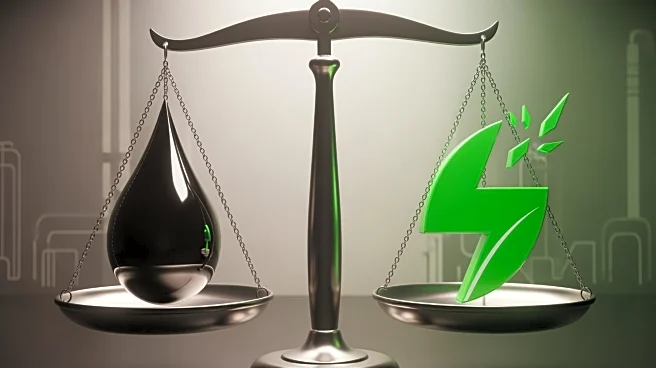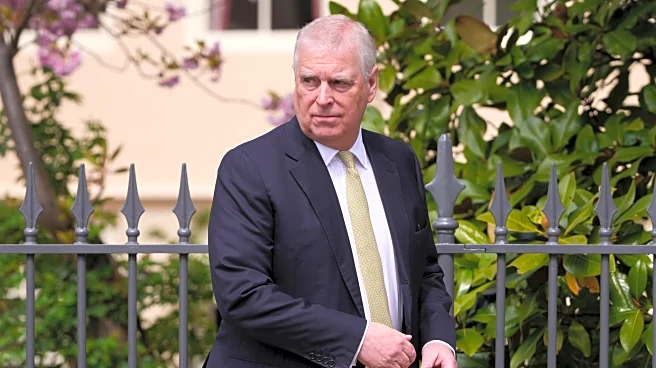What's Happening?
The Organization of the Petroleum Exporting Countries and its partners, collectively known as OPEC+, have announced a decision to pause their planned oil output increases for the first quarter of 2026.
This decision comes as the alliance anticipates a slowdown in demand and a potential oversupply in the market. West Texas Intermediate crude saw a slight increase, settling above $61 a barrel, as traders reacted to the news. The decision to halt production hikes reflects expectations of a seasonal demand slowdown and follows a period where OPEC+ had been ramping up output to regain market share. Despite the pause, the group still has about 1.2 million barrels a day of their current supply tranche to restore. The move has prompted Morgan Stanley to adjust its near-term price forecast for Brent crude, although concerns about a substantial surplus remain.
Why It's Important?
The decision by OPEC+ to pause output increases is significant for the global oil market, particularly as it grapples with potential oversupply issues. This move could stabilize or even increase oil prices in the short term, affecting energy costs worldwide. For the U.S., which is a major oil consumer, changes in oil prices can have broad economic implications, influencing everything from transportation costs to inflation rates. The decision also highlights the ongoing geopolitical tensions affecting oil supply, such as the impact of U.S. sanctions on Russian oil producers. Energy companies and investors will be closely monitoring these developments, as they could affect profitability and investment strategies in the energy sector.
What's Next?
As OPEC+ pauses its output increases, stakeholders will be watching for any shifts in global demand that could alter the current supply dynamics. The impact of geopolitical events, such as sanctions on Russia and disruptions in the Black Sea, will also be critical factors to monitor. Energy producers and market analysts will likely adjust their strategies and forecasts based on these developments. Additionally, the response from non-OPEC producers, who have been increasing their output, will be crucial in determining the overall market balance. The upcoming Adipec conference in Abu Dhabi may provide further insights into the strategies of major energy producers in response to these challenges.












